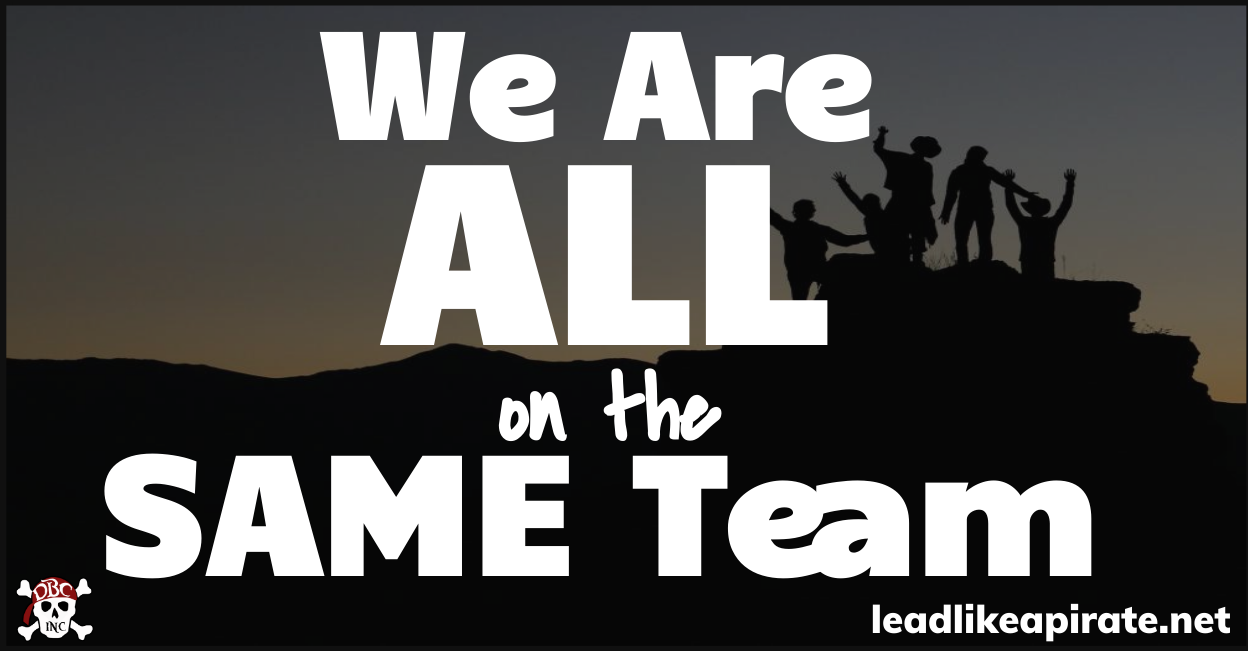
If only the teachers would . . .
If only the principal would . . .
If the Board would just…
If the parents would just . . .
If the district would stop making us . . .
If the students weren’t so . . .
Leaders do it. Teachers do it. Staff members and parents do it. We point fingers. We blame. It can’t be us, so it must be them. Blaming is a culture that exists in too many school systems, and quite frankly, it’s toxic. It gets in the way of creating the kinds of schools where all people thrive.
How many times have you sat in a meeting and heard people complain about others? Teachers blaming the Board or the Central Office? The Board and the administrative team blaming the teachers? How much time and energy does this blaming and complaining consume?
Systems where an “us” vs. “them” mentality dominates the culture wastes countless hours of valuable time and energy. Rather than channeling their collective energy and directing it to something positive for their schools, people fight against each other.
A core value of “leading like a PIRATE” – one that helps shape the daily work we do as leaders—is the idea that we are all on the same team. And as a team, we can accomplish great things.
Being a leader of a great team requires that you highly value each individual member of your team. As a leader, when you look at each person on your team, what do you see? Do you see what frustrates you? What makes you crazy? What you don’t like? What you wish they wouldn’t do?
Or do you see what you appreciate? What they do that makes an impact? What you admire about them and the talents they have to contribute? How you perceive the people on your team directly influences how you treat them, what you expect of them, what you believe they can accomplish. If you don’t believe in them, how can you expect to lead them?
In John Wooden’s book: Leadership Game Plan for Success, he says this:
“Over and over, I have taught that we all have a certain potential, unique to each one of us. A unique potential also exists for every team. My responsibility as a leader—and yours—is to make the utmost effort to bring forth that potential… That, in my opinion, is the first goal of leadership—namely, getting the very best out of the people in your organization, whether they have talent to spare or are spare on talent.”
Let go of the blame. Reject the excuse that “If I only had more talented people, I could make this place great.” Instead, embrace the question, “How can I lead my system to greatness using the team that I have?” Most people do not show up to work in schools and school systems thinking I’d like to just be mediocre today. Most people want to learn, grow, and thrive. Every person on your crew has knowledge, gifts, and talents to share. Individually and collectively, they have the capacity to do amazing work, and it is a critical (and we believe FUN) part of our jobs as leaders to help bring out the best in our people.
Is it easy? No. In fact, discovering what’s special about each person on your team takes time and focused energy. Do it anyway. Be relentless in seeking out and nurturing each person’s greatness. Spend time with people, ask questions, watch them doing their jobs. Pay attention to what energizes them and publicly notice the impact they make. Tell them often how much you appreciate and value their unique contributions and how what they do helps the team and the school as a whole.
Our days and weeks can be so jam-packed with “stuff” that it is easy to get overwhelmed with the sheer number of tasks on the to-do list. Investing every minute of our time in low-value tasks at the sacrifice of investing time in our people dooms us to walk the plank of mediocrity.
When we invest the time in getting to know the unique knowledge, skills, talents, and gifts that each person possesses, we not only build relationships and trust, but we also begin to build the knowledge we need as leaders—the knowledge to help us utilize and maximize the talents of our team in the best way possible. This then helps us move the entire team and system forward with a jolt of positive momentum.
Reflect:
Do you ever play the “blame game”?
If you have been focused on placing blame on someone, stop and ask yourself: How can I reframe those thoughts in a more positive way?
When you find yourself in a situation with colleagues who start to play the blame game, make a deliberate choice not to engage. Better yet, redirect the conversation in a more positive and fruitful direction.
What do you see when you look at your team members? Instead of looking for flaws and faults, make a list of things you appreciate about your staff. Then, send a note of thanks or encouragement or, better yet, publicly acknowledge the good you see in the educators and administrative staff with whom you work.